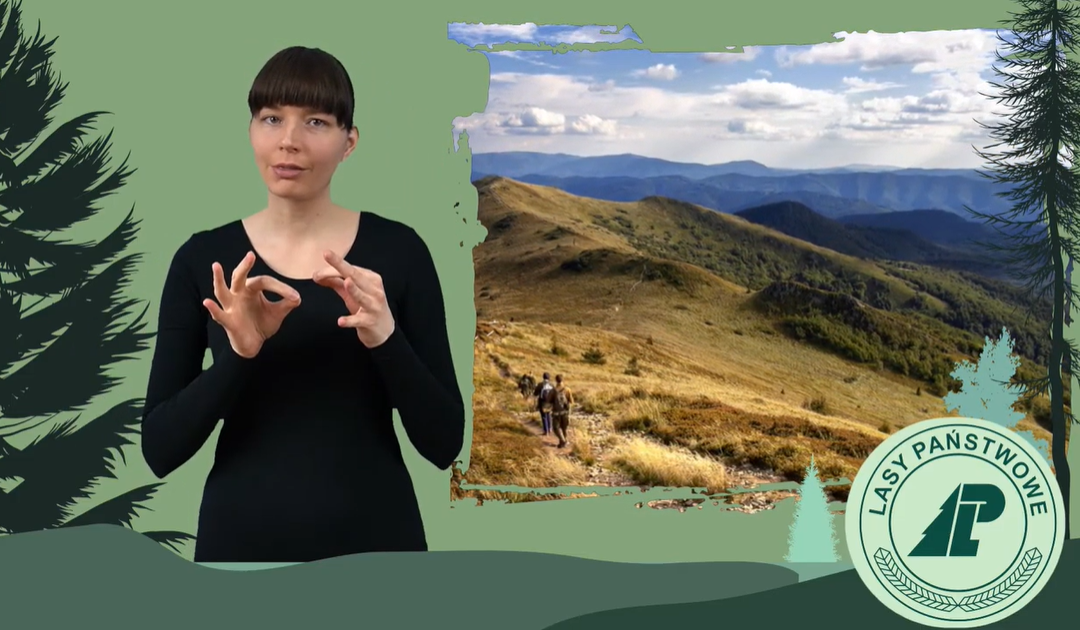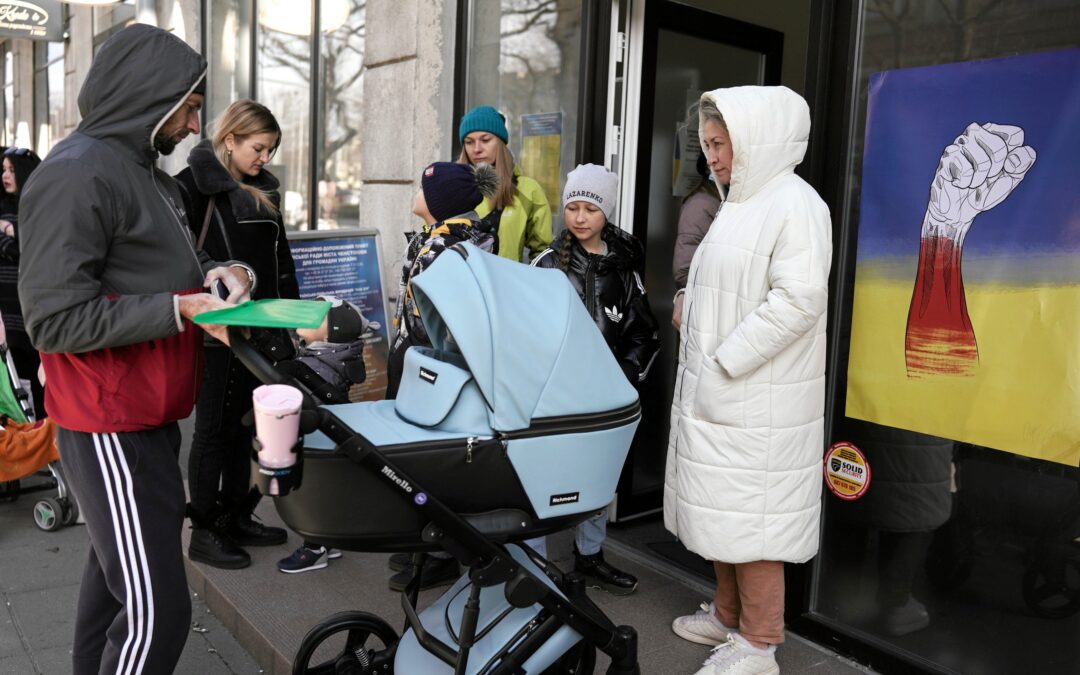Poland’s state-run forestry, Lasy Państwowe, is translating its online guides for hiking trails into sign language. The move is part of growing efforts in Poland to improve accessibility to recreational and cultural activities for people with disabilities.
Amid the coronavirus lockdown – with the government encouraging domestic travel this summer whilst the borders remain closed and cultural institutions developing their online services – these efforts have continued.
“During the pandemic, Poles have had to stay in their homes and probably in the summer they will also have to stay in the country,” explained Lasy Państwowe. “We have prepared several ready-made proposals for weekend trips to Polish forests.”
The guides have been designed for families, sports people, but also for seniors. “We want everyone to enjoy the charms and benefits of forests – including people with disabilities. That is why expeditions translated into Polish sign language are also available”.
All ten of the trails on the Lasy Państwowe website will eventually be translated into sign language to improve accessibility, with the company’s Development and Implementation Centre in Bedoń making the films..
The first to be available is a three-day trail in the Bieszczady Mountains in south east Poland. The sign language guide for this trail provides information on recommended clothing and footwear, a day-by-day sightseeing schedule, and descriptions of places worth seeing, including the Solina Dam, the largest in Poland, and a narrow gauge tourist railway.
Enormous need for information
The Polish Hearing Impaired Foundation estimates the number of deaf people communicating in sign language at between 45,000 to 60,000. In addition, over a million people are hearing impaired, while as much as 10% of society has some form of hearing loss. Yet there are still few publications or television programmes in sign language in Poland, says Krzysztof Wostal from the foundation.
“The need for access to information, including tourist information, is enormous,” says Wostal. “That is why it is so important to create more and more messages available in sign language and with subtitles.”
Some Poles who are hearing impaired have also criticised the lack of sign language translations for official announcements, especially during the coronavirus pandemic, according to Gazeta Wyborcza. In March, the Polish Association of the Deaf appealed to the prime minister and health minister to provide sign language to accompany speeches.
“We are Poles, children, parents, and grandparents who, like the rest of society, want to protect ourselves and our families from the virus,” the letter read. “The fact that we do not hear does not mean that we are resistant to it.”
The next month, a specially designed hotline to provide help for deaf Poles during the pandemic was launched by the Polish Association of the Deaf with government funding. Polish sign language translators from across Poland work in shifts to provide information about coronavirus and assistance in the case of infection, reports TVP.
Improving accessibility
Poland has already made progress in improving accessibility. Last year, Warsaw won the European Union’s annual Access City Award for doing the most to improve accessibility for people with disabilities. These efforts have continued during the current lockdown.
In April, the Silesian Museum ran online classes and lectures that were translated into sign language. Previously, the Museum has worked with deaf artists and partnered with the Encyclopedia of Art in Polish Sign Language project, producing short videos and holding workshops in 2018.
This week, a new online platform, Mojeekino.pl, was launched, showing cinema productions from nearly 50 studio cinemas across Poland that will be adapted to the needs of blind and deaf people, according to Onet.
Meanwhile, the Upper Silesian Museum in Bytom is creating virtual walks that will include sign language translations. In Białystok, the Army Museum has converted its permanent exhibitions into 360 degree panoramas with audio descriptions for the blind and visually impaired. The Provincial Public Library in Opole has also created a film on the conservation of valuable books in their collection, which can be viewed with sign language translation.
Arsenal City Gallery in Poznań has also held a virtual debate on Facebook on the current state of culture, featuring city officials and local artists and curators, which was translated into sign language. A similar event, also with sign language, was held by Culture Zone Wrocław.
With resources and cultural offerings now being adapted to cater to those with disabilities, institutions across Poland have shown they have a greater understanding of the need for accessibility.
This is even the case for hospitals: a working prototype mask has been designed to help the deaf community, which includes a see-through insert to allow lip-reading, reports TVN24. Creator Mateusz Witczyński now hopes to roll it out on a larger scale.
There is still, however, clearly progress to be made, not only in implementation but also awareness. Earlier this year, two conservative politician submitted a complaint about posters featuring a well-known blogger making what they said was a “satanic” gesture. In fact, she had been saying “I love you” in sign language.
"Pokazała "Kocham cię" w języku migowym. Radni PiS myśleli, że wyznaje szatana." W interpelacji do burmistrza sprzeciwiają się satanistycznym znakom.
🤦🏻♀️🤦🏻♀️https://t.co/58a7xlfKD2— Anna Mierzyńska (@Anna_Mierzynska) March 4, 2020
Main image credit: Lasy Państwowe/Youtube

Juliette Bretan is a freelance journalist covering Polish and Eastern European current affairs and culture. Her work has featured on the BBC World Service, and in CityMetric, The Independent, Ozy, New Eastern Europe and Culture.pl.




















